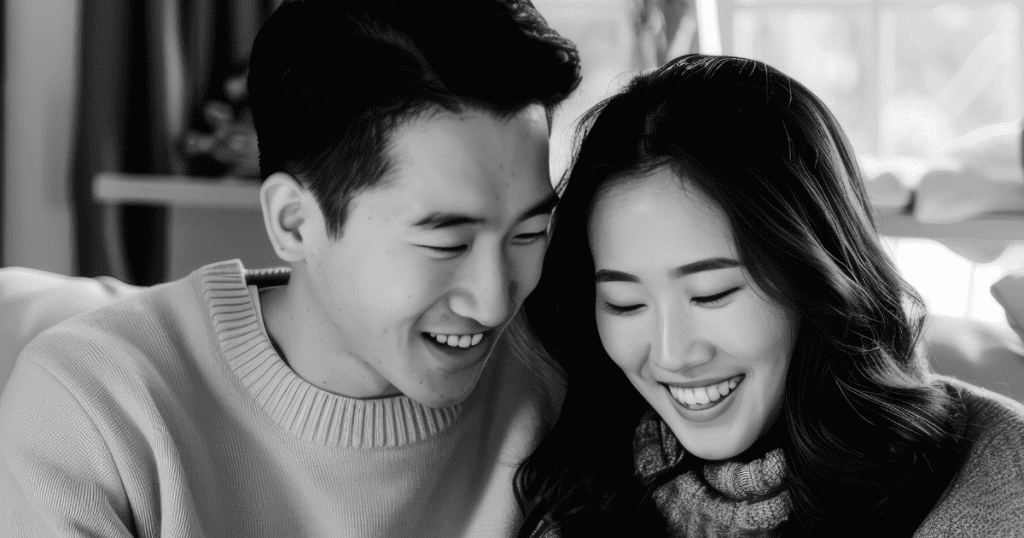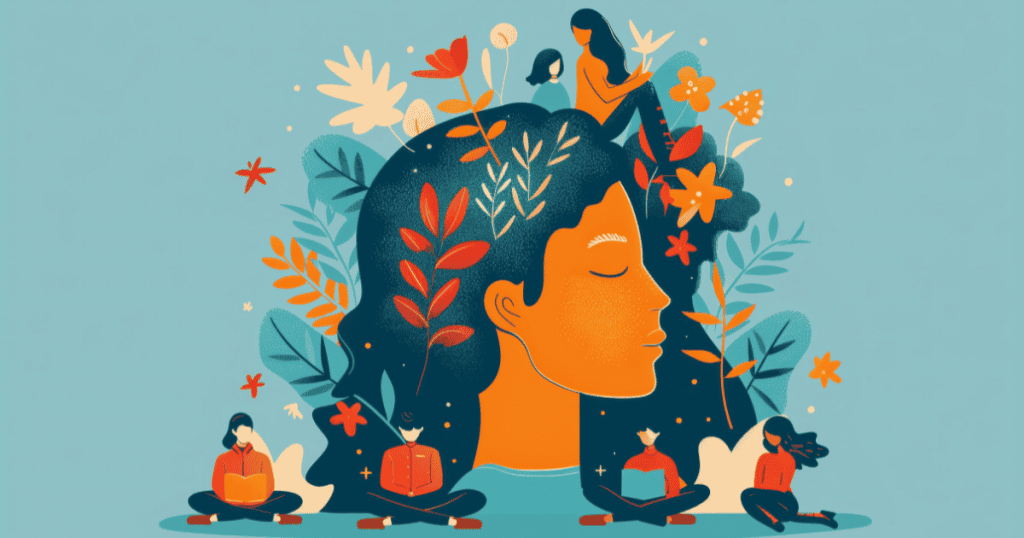The hardest part wasn’t leaving the narcissists. It was learning how to live with my own mind afterward.
When the shouting and chaos stopped, I thought I’d finally have peace.
But the silence was worse.
In that silence, my mother’s voice lived on inside my head, sharper than ever.
My younger brother’s mocking words echoed during the quietest moments.
My sister’s subtle digs about “never being enough” replayed like a broken record.
I realized I had carried them inside me.
There was a night I stood in the kitchen, staring at a sink of unwashed dishes. The voice in my head hissed, “Lazy, useless, ungrateful.”
It felt harsher than anything ever said to my face.
That was when I understood. The narcissists were gone, but my mind had become their stage.
The best mental health advice I ever received didn’t sound profound.
It wasn’t dressed up in therapy jargon or wrapped in fancy affirmations.
It was simple, almost childlike, but in the trenches of recovery, it was oxygen.
These nine pieces of advice became lifelines, tactical tools that helped me rebuild peace after years of chaos.
9 Best Mental Health Advice I Ever Received After Narcissists

Healing after narcissistic abuse isn’t about ignoring the past. It’s about rewiring what the past left behind.
Each piece of advice I’m about to share landed like a weapon in my hand, a strategy that helped me outmaneuver the old programming.
1. Your Inner Critic Is Not the Truth
I remember standing in front of the bathroom mirror, repeating every criticism my narcissistic mother used to say about my appearance.
I didn’t even realize it at first. It felt like my voice.
But that was the trick.
Narcissists don’t just attack you. They train you to attack yourself.
The harsh inner critic wasn’t some “truthful” self-awareness, but an implanted voice.
The day I asked myself, “What if this isn’t true?” was the day I got some breathing room.
My thoughts weren’t facts. They were echoes.
And once I saw them for what they were, I felt relief for the first time.
Questioning your inner critic is like pulling back a curtain. You see the illusion for what it is.
Not your voice, but theirs.
2. Talk to Yourself Like a Friend

One night, I burned dinner. It wasn’t catastrophic, but I caught myself muttering, “You always ruin everything.”
Those were my toxic younger brother’s words, embedded in my psyche since childhood.
If my best friend told me she made a cooking mistake, I’d never call her a failure. I’d laugh with her and say, “Order pizza. It’s fine.”
So why didn’t I offer myself the same grace?
That was the moment I started talking to myself like a friend.
It felt odd at first, almost rebellious, like I was undoing years of conditioning.
But every kind word I gave myself was an act of defiance.
When you speak kindly to yourself, you train your mind to heal instead of spiral.
Every gentle phrase builds a shield between you and the programming the narcissists left behind.
3. If It Still Bothers You, Address It
One Christmas, my narcissistic sister “joked” in front of relatives that I was “the difficult one” in the family.
Everyone laughed.
I forced myself to laugh, too. But the sting stayed with me for days.
I swallowed it, as I always did, yet the resentment grew and poisoned me.
That’s when I learned the 24/48-hour rule: if something still bothers you after 24 hours, address it within 48.
The next time it happened, I looked her in the eye and said calmly, “That wasn’t funny to me. Don’t make me the punchline.”
My voice shook, but I walked away lighter.
Silence can feel safe, but it corrodes you. Because silence protects the narcissist’s comfort, not your peace.
Speak up. It doesn’t guarantee change in them, but it guarantees freedom in you.
Using your voice is how you reclaim yourself.
4. Treat Yourself Like Someone You’re Responsible For

I used to skip doctor’s appointments because my manipulative mom “needed” me.
I’d miss meals during a narcissistic family drama.
I’d collapse into bed but push myself up again if my toxic siblings called with their crises.
My needs always came last.
Then I heard this advice: “Treat yourself like someone you’re responsible for.”
I’d never let my son skip meals, neglect sleep, or miss checkups.
Why was I treating myself worse than I’d treat a stranger?
So I booked the appointments. I started resting without apology.
I even set boundaries with chaotic relatives, saying, “I can’t talk right now.”
Small steps, but they built into something powerful.
Self-care goes beyond indulgence. It’s a responsibility.
Treating yourself with dignity proves you’re no longer handing your life over to the narcissists.
5. Your Mind Becomes What You Feed It
There was a time when my phone was a portal of chaos.
My mother’s messages full of guilt, my sister’s cryptic posts, a narcissistic family member‘s subtle digs.
My whole digital world kept me plugged into their toxicity.
One night, I deleted half my contacts.
Then I filled the empty space with podcasts on resilience, books about healing, and friends who encouraged me instead of draining me.
My environment changed, and so did I.
The constant shame-loop in my head began to weaken.
One of the best lessons I learned from this is simple but powerful: if you control the inputs, you control the narrative.
What you feed your mind becomes your default programming.
So curate it like your life depends on it, because it does.
6. Rest Isn’t Something You Earn

Growing up, rest was forbidden.
If I sat down, my mother called me lazy. If I napped, my self-absorbed sister would mock me.
I carried that guilt into adulthood, believing I had to earn rest.
But one day, I heard, “Rest isn’t a reward. It’s fuel.”
I began to treat rest like a chess player treats strategy, deliberate, calculated, and necessary.
I napped before important meetings. I let myself recharge without apology.
Because of this, I became sharper, calmer, and harder to provoke.
The narcissists thrived when you were exhausted, so I see rest as a strategy rather than laziness.
Once I discovered the strength that came from rest, I also learned something else.
Even when exhaustion or setbacks hit hard, they don’t define the whole journey.
7. A Bad Day Is Not A Bad Life
After cutting ties with my brother, guilt hit me hard.
One evening, I collapsed on my bedroom floor, clutching a pillow like it was the only thing keeping me from falling apart.
My chest hurt, my thoughts raced, and I whispered to myself, “Maybe I made a mistake. Maybe I’m broken forever.”
In that moment, it felt like everything I had built was crumbling.
All the boundaries, all the courage, all the hours of reclaiming myself, seemed to vanish in one wave of grief.
But the truth was, it was one bad day.
The empire I was building with boundaries and peace was still intact. The walls didn’t collapse just because I stumbled into them.
Setbacks don’t erase progress. They become part of it.
Healing moves like a spiral, sometimes circling back to the pain, but each time rising a little higher, carrying more strength than before.
Don’t mistake a bad day for a bad life.
One storm doesn’t cancel the entire season.
One stumble doesn’t erase the road behind you.
Healing is uneven, but every breakdown is proof that you’re still walking forward, and that in itself is victory.
8. Gratitude vs. Anxiety

I used to spiral over what my narcissistic family might be saying behind my back.
My mind would race through imagined conversations, my mother’s sharp tongue, my sister’s digs, or my brother’s smirks.
It felt like they were still in the room with me, even when I was alone.
The anxiety was relentless, tightening around my chest like a vice.
Then one morning, I tried something different.
I said out loud three things I was grateful for: my dad’s steady support, my cousins’ laughter, and my husband’s belief in me.
The words felt awkward at first, almost forced, but within minutes, the spiral slowed.
The shift was undeniable.
Gratitude hijacked the anxiety, not through magic but through rewiring.
Your brain can’t hold gratitude and anxiety at the same time. They compete for the same mental space.
Gratitude is a tactical interruption. It cuts the spiral mid-flow.
When the panic rises, don’t argue with it. Replace it. Interrupt it.
Gratitude is more than “positivity.” It’s a weapon.
And wielding it in the middle of a spiral can change the entire course of your day.
9. Stop Apologizing for Feelings
I used to apologize for everything, like crying, being tired, and even laughing too loudly.
My controlling mother had trained me to believe emotions were dangerous, that they made me “too much” or “too needy.”
Over time, I began to shrink, editing myself before anyone else could.
One day, while venting to my cousin after a long, draining week, I caught myself saying, “Sorry, I’m just overwhelmed.”
She didn’t let me finish. She looked me straight in the eye and said, “Stop apologizing for existing.”
It hit me like a bolt.
I wasn’t wrong for crying. I wasn’t wrong for feeling joy even when others disapproved.
My feelings were proof that I was alive. They weren’t flaws.
At first, it was uncomfortable, like walking into a room without armor.
With each moment of honesty, crying without excuse, speaking up without shrinking, I began to see my emotions differently.
They weren’t a burden. They were a compass.
I knew then that you should stop shrinking to fit others’ comfort. Your feelings deserve space.
Taking up emotional space is part of taking back your power.
When you stop apologizing for how you feel, you stop apologizing for who you are.
Why This Advice Hit Differently After Narcissists?

These truths sound simple. But after years of gaslighting, simplicity feels revolutionary.
When you’ve been trained to doubt your reality, you don’t need long lectures. You need short, sharp reminders that cut through the fog.
Survivors don’t lack intelligence. We lack safe programming.
That’s why these “childlike” truths hit so hard. They rebuild your brain in ways therapy books can’t.
For me, each piece of advice was a victory.
- Questioning my critic.
- Speaking up.
- Resting without guilt.
- Treating myself like I mattered.
They weren’t just words. They were weapons that rewired me.
And if you’re reading this, take this in: needing reminders doesn’t signal weakness. It’s proof you’re healing.
Piece by piece, truth by truth, you’re building a mind that no narcissist can control again.
Related posts:
- 7 Perspective Shifts That Changed Everything For Me After Healing From Narcissistic Abuse
- 7 Patterns Resilient People Have After Healing From Narcissist Trauma
- How To Stay Consistent In Your Healing After Narcissistic Abuse
- Healing Emotional Scars After Sibling Toxicity: How I Did It!
- Healing From Narcissistic Family Abuse: My Story, Your Hope



Thank you so much. It hit home. I’m 62 and grew up with both my parents this way. I’ve recently had to move back home or be homeless. Homeless is à better situation though. My mom likes to fabricate the abuse she gives my dad and I is being done to her so she’ll call the police file reports that are lies , play the poor victim role then presses charges. She’s done this my whole life and still does at 85 years old and the Grey now white hair she has since 23 yes old helps her story of lies be more believable. I will practices those lessons. Ty